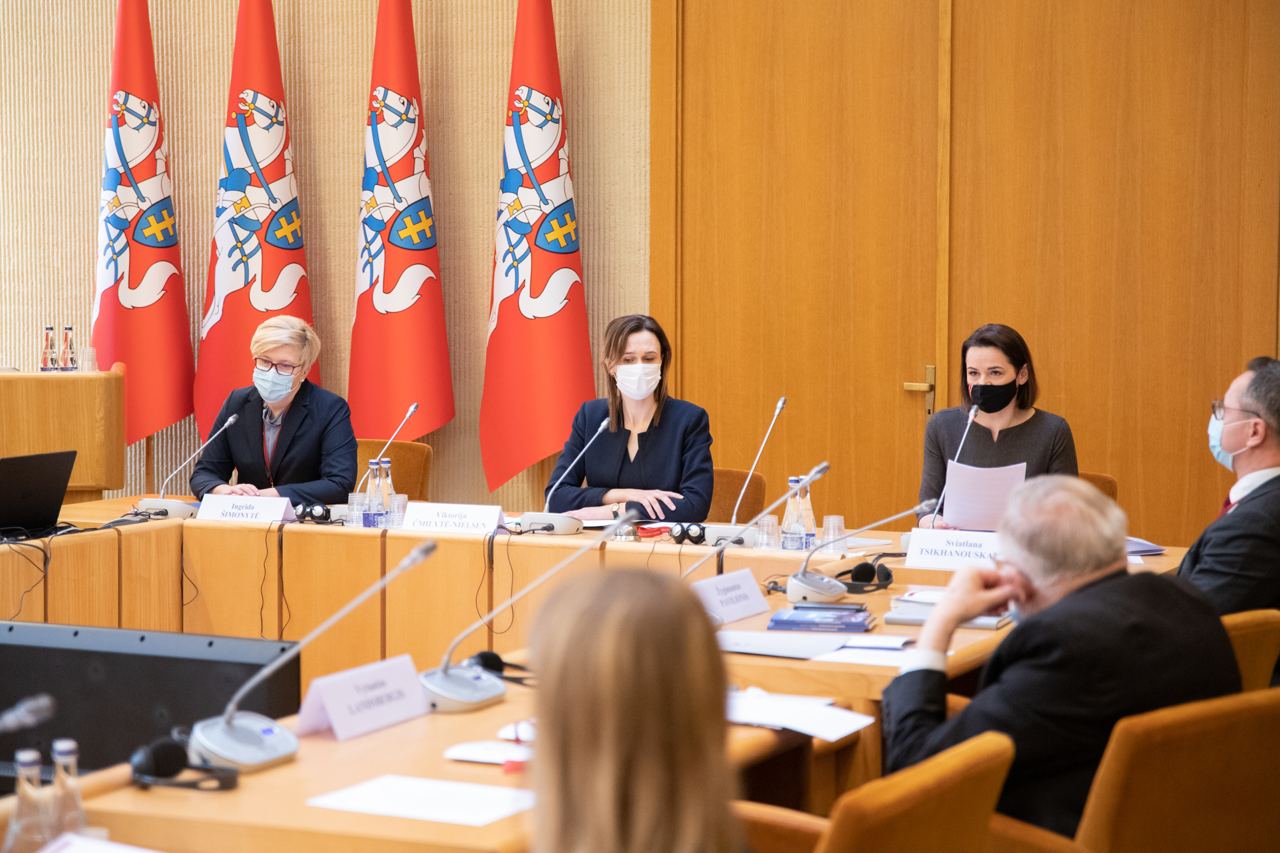Today, the Kalinowski Forum took place in Vilnius, organized by the Seimas of the Republic of Lithuania in cooperation with the Office of Sviatlana Tsikhanouskaya. World politicians and experts discussed the situation in Belarus and developed a common strategy of how to help solve the Belarusian crisis within the framework of the forum.
At the forum, Sviatlana Tsikhanouskaya spoke about the current situation in Belarus, mass political repression by the regime, and electronic voting for negotiations as a peaceful solution to the crisis in the country. More than 670,000 Belarusians have already voted for the negotiations on the Voice platform. The leader of democratic Belarus stressed that Belarusians are not only in favor of negotiations but also have been actively resuming the protest movement since the beginning of spring.
Sviatlana Tsikhanouskaya called on politicians and experts from Europe, the United States, Canada, and Russia:
– to facilitate the organization of negotiations with the representatives of the regime – with international mediation;
– to form a diverse group of mediators for the negotiations;
– to insist on the immediate stopping of violence by the armed forces, on the restoration of the rule of law, and on respect of human rights in Belarus;
– to make those who commit crimes against humanity face the consequences;
– to guarantee the safe return home of those who were forced to flee Belarus;
– to express solidarity with Belarusians on Freedom Day, March 25.
- Lithuanian Prime Minister Ingrida Šimonytė and Chairman of the Lithuanian Foreign Affairs Committee Žygimantas Pavilionis showed support for a peaceful solution to the crisis in Belarus. Mr. Pavilionis said that changes in Belarus can happen this year. But according to him the West should not simply discuss the situation, but also act.
- Vice-President of the European Commission Josep Borrell stressed that the EU is ready to impose additional sanctions if the situation in Belarus does not change. Europe has already revised its support for Belarus so that all assistance is directed to civil society. The EU stands for dialogue as the way to peacefully resolve the crisis in Belarus.
- During the forum, the OSCE PA President Peter Lord Bowness stressed that the OSCE is ready to act as an observer in a future election and help Belarusians in electoral, constitutional, and other reforms.
- David McAllister, the Chairman of the European Parliament's Foreign Affairs Committee, said that the EU will focus its assistance on combating lawlessness, supporting democracy, and organizing a dialogue for a peaceful transfer of power in Belarus.
- U.S. Ambassador to Belarus Julie Fischer expressed strong support for Tsikhanouskaya’s initiative to vote for negotiations and the OSCE's readiness to mediate this issue.
- George Kent, Deputy Assistant Secretary of State for European Affairs, supported the initiative to hold negotiations in Belarus. He said that the dialogue will be the next step to solve the Belarusian crisis, which means stopping the violence and releasing political prisoners.
As a result of the conference, politicians and experts from the EU, the US, and the OSCE:
– condemned human rights violations and the regime's brutality towards peaceful protesters;
– supported Sviatlana Tsikhanouskaia's call for a peaceful solution to the crisis in Belarus through negotiations with international mediation;
– endorsed that the new free and fair elections should be held this year, under international supervision. To do this, negotiations must take place, while the UN and OSCE should take the initiative to provide a platform for negotiations;
– announced the plans to create a mechanism for holding those responsible for crimes against humanity accountable, including through international courts;
– called on Sweden, as on the OSCE Chair, to take a leading role in promoting inclusive dialogue in Belarus and holding new presidential elections;
– called on international organizations to demand an immediate end to the violence, the release of all political prisoners, and the safe return of all Belarusians forced to leave the country;
– recommended the international democratic community to use sanctions as a means of putting pressure on the regime if the representatives will not agree to hold a dialogue;
– called for international investigations of human rights violations in Belarus with the support of the UN, OSCE, and other international organizations;
– called on the international community to support independent media, human rights defenders, civil society, workers, and small businesses;
– underscored the need to publish a comprehensive plan of support for Belarus, which would provide macroeconomic support in the transition period after the free and fair elections;
– proposed to initiate an international coalition of stakeholders, representatives of the government, legislators, and expert communities to develop a roadmap for resolving the crisis in Belarus;
– called on the Council of Europe to establish a permanent working group with representatives of the Parliamentary Assembly and the Committee of Ministers to protect human rights, democracy, and the rule of law in Belarus.








